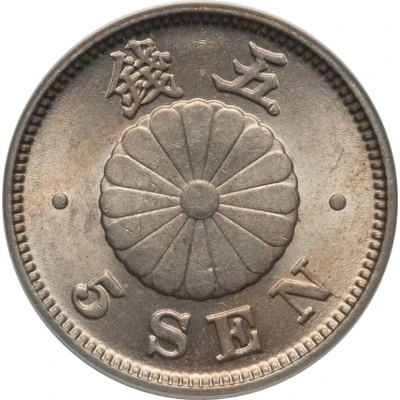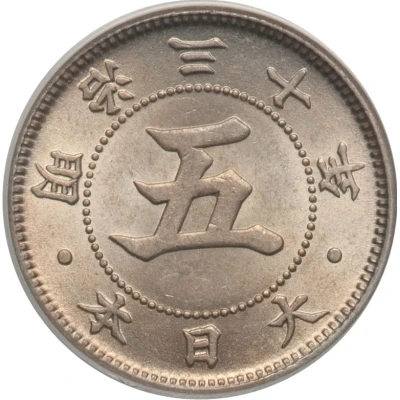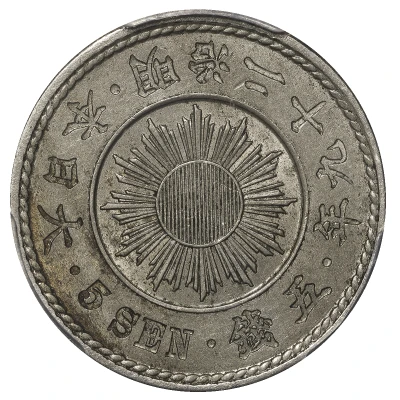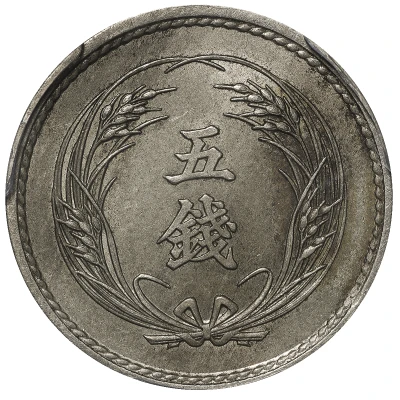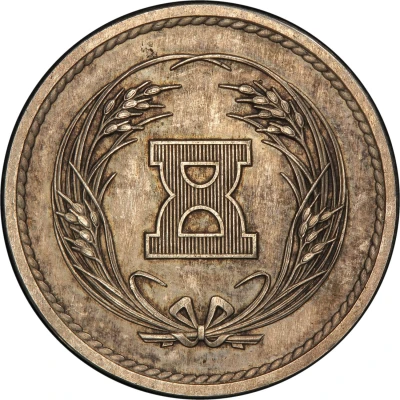
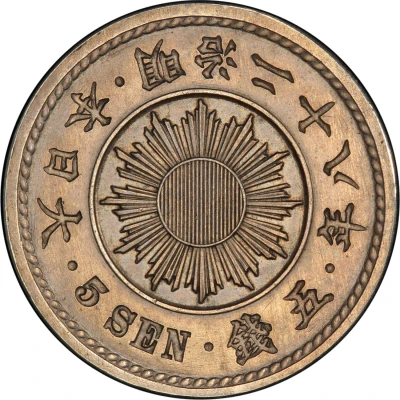

© PCGS
5 Sen - Meiji Pattern
28 (1895) year| Copper-nickel | - | - |
| Issuer | Japan |
|---|---|
| Emperor | Meiji (1867-1912) |
| Type | Pattern |
| Year | 28 (1895) |
| Calendar | Japanese - Meiji era |
| Value | 5 Sen (0.05 JPY) |
| Currency | Yen (1871-date) |
| Composition | Copper-nickel |
| Shape | Round |
| Technique | Milled |
| Demonetized | Yes |
| Updated | 2024-10-06 |
| Numista | N#284320 |
|---|---|
| Rarity index | 97% |
Reverse
Radiant sun within circle, legends around
Lettering:
錢五 · 年八十二治明 · 本日大 ·
· 5 SEN ·
Translation:
· Great Japan · Year 28 of Meiji
· 5 sen ·
Interesting fact
The Pattern 5 Sen - Meiji (Pattern) 28 (1895) coin from Japan made of Copper-nickel is interesting because it was minted during a time of significant change in Japan's monetary system. In the late 19th century, Japan was transitioning from a feudal society to a modern, industrialized nation, and the government was looking for ways to modernize its currency. The Pattern 5 Sen coin was one of the first coins to be minted in the new system, and it features a unique blend of traditional Japanese design elements and modern minting techniques. The coin's obverse features a stylized chrysanthemum, which was a symbol of the Japanese emperor, while the reverse features a numeral 5 surrounded by a wreath of paulownia leaves. The use of copper-nickel in the coin's composition was also a departure from the traditional use of silver and gold in Japanese coins, reflecting the country's desire to adopt more modern and practical materials in its currency.
